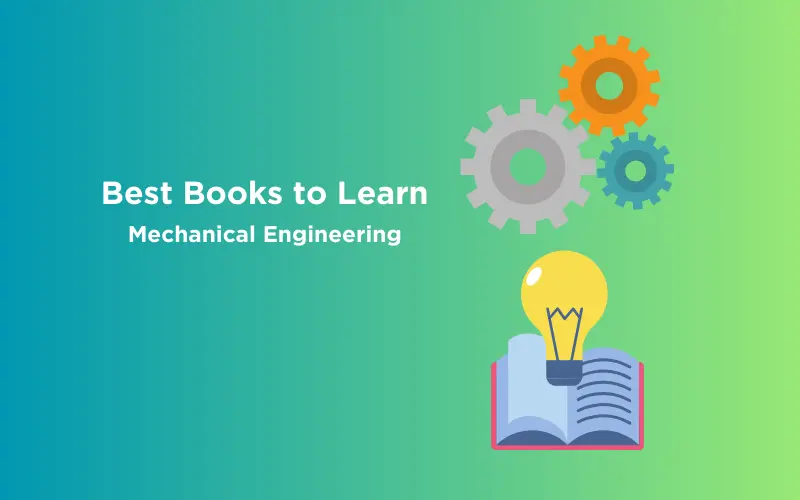
12 Best Books to Learn Mechanical Engineering
Mar 20, 2025 4 Min Read 4263 Views
(Last Updated)
Mechanical engineering is all about making things work. From creating cool gadgets to designing powerful machines, it’s a big part of our world. Mechanical engineers help us build cars, aeroplanes, and much more. They make our lives easier and our world more exciting.
In this blog, we’ll show you the best books to learn mechanical engineering. They cover everything you need to know, from the basics to the complex concepts. Whether you’re just starting or you’re already a pro, these books will be your best teachers.
Ready to explore the world of gears, machines, and innovation? Let’s dive into these amazing books and learn all about mechanical engineering.
Table of contents
- Best books for Mechanical Engineering
- Fundamentals of Mechanical Engineering
- Thermodynamics and Heat Transfer in Mechanical Engineering
- Fluid Mechanics for Mechanical Engineering
- Mechanical Engineering: Machine Design and Analysis
- Mechanical Engineering in Robotics and Automation
- Mechanical Engineering: Understanding Engineering Mechanics
- Conclusion
- FAQs
- What are the best books for beginners in mechanical engineering?
- Which book is recommended for a deep dive into thermodynamics and heat transfer in mechanical engineering?
- What books should I consider if I want to specialize in machine design and analysis?
Best books for Mechanical Engineering
Here are some of the best mechanical engineering books according to various domains and concepts in the subject.
Fundamentals of Mechanical Engineering
Following are some of the fundamental mechanical engineering books that will be fantastic resources to kickstart your understanding of mechanical engineering. They provide a solid foundation and practical knowledge to help you through your journey in this exciting field.
A. “Shigley’s Mechanical Engineering Design” by Richard G. Budynas and J. Keith Nisbett
This book takes you deep into designing machines and mechanical systems. It helps you understand how to create things that work efficiently and safely. With an impressive 4.4 Amazon rating, it offers a wealth of real-world examples and practical tips. This book shows you how to put your mechanical design knowledge to use.
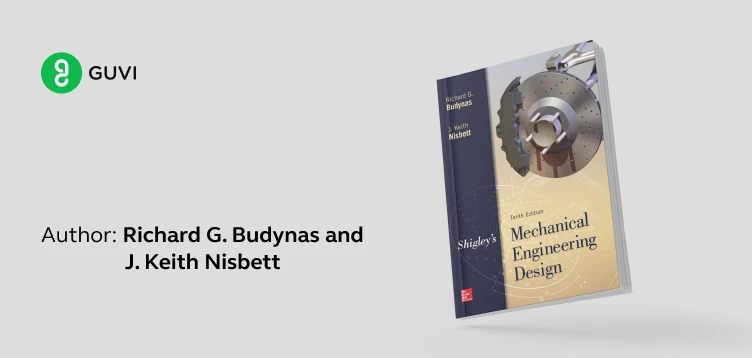
B. “Mechanics of Materials” by Russell C. Hibbeler
This book, with a 4.4 Amazon rating, covers everything you need to know about how materials like metals and plastics behave under different forces. It’s like a user manual for materials! The book explains things in a simple way and gives you lots of solved problems to practice. It’s like having a personal tutor.

Thermodynamics and Heat Transfer in Mechanical Engineering
Here are some of the best books related to Thermodynamics and Heat Transfer that will help you grasp the concept of thermodynamics and heat transfer, making these challenging topics more accessible and engaging. They are valuable resources for anyone studying or working in these fields.
A. “Fundamentals of Engineering Thermodynamics” by Michael J. Moran, Howard N. Shapiro, and Daisie D. Boettner
This book, with a remarkable 4.4 Amazon rating, breaks down the often complex concepts of thermodynamics into easy-to-understand parts. It’s your personal guide to understanding heat, energy, and work. The authors make learning thermodynamics fun. They explain things in a way that’s easy to follow, even if you’re new to the subject.
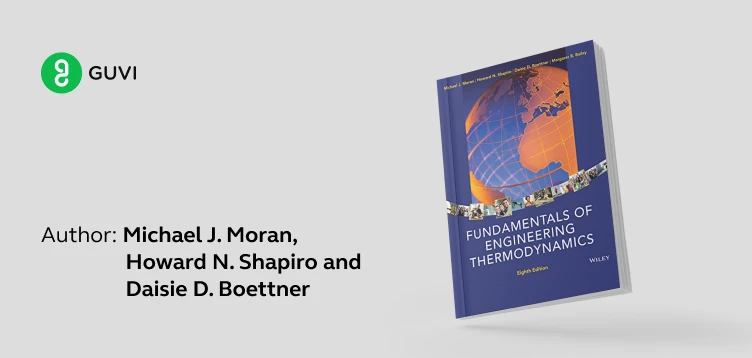
B. “Heat and Mass Transfer” by Yunus A. Çengel and Afshin J. Ghajar
This book covers everything you need to know about how heat and mass move around. It’s your heat and mass transfer encyclopedia. The book gives you plenty of real-life examples, so you can see how these principles work in everyday situations. People who’ve read it have given it a really good 4.4 rating on Amazon, saying it’s great for students and anyone interested in learning about heat and mass transfer.

Fluid Mechanics for Mechanical Engineering
Here are some of the books on Fluid Mechanics that will be valuable resources for anyone studying fluid mechanics.
A. “Fluid Mechanics” by Frank M. White
This book covers everything about how fluids (like liquids and gases) move and behave. It’s your fluid mechanics encyclopedia. It’s not just theory; this book provides lots of problems to solve and practical tips to help you understand and apply fluid mechanics. People who bought it gave it a 3.8 rating on Amazon, which is pretty good!

B. “Introduction to Fluid Mechanics” by Robert W. Fox, Alan T. McDonald, and Philip J. Pritchard
If you’re new to fluid mechanics, this book is your best friend. With an exceptional 4.1 Amazon rating, it starts with the basics, guiding you through foundational principles in a clear, step-by-step manner. The book uses simple language and pictures to help you understand, making it easier to grasp complex ideas.

Mechanical Engineering: Machine Design and Analysis
Here are some of the books for Machine Design and Analysis that will be your best companions in understanding machine design and analysis while offering detailed insights and practical examples to help you become an expert in this field.
Before we move on to the next part, if you want to develop a superior career in mechanical engineering and gain a deeper knowledge of key mechanical engineering concepts, you can consider enrolling yourself in GUVI’s CAD Program for Mechanical Engineers, which lets you gain practical experience by developing real-world projects and covers technologies including AutoCAD, Solidworks, CATIA, Ansys, GD & T, etc.
Additionally, if you would like to explore AutoCAD for Mechanical Engineering through a self-paced course, you can take GUVI’s AutoCAD Mechanical Certification Course.
A. “Mechanical Engineering Design” by Joseph Edward Shigley and Charles R. Mischke
This book, with an impressive 4.4-star rating on Amazon, takes you deep into designing machines, providing a comprehensive understanding of the principles involved. Practical examples and case studies help you see how these design principles work in real-world applications.
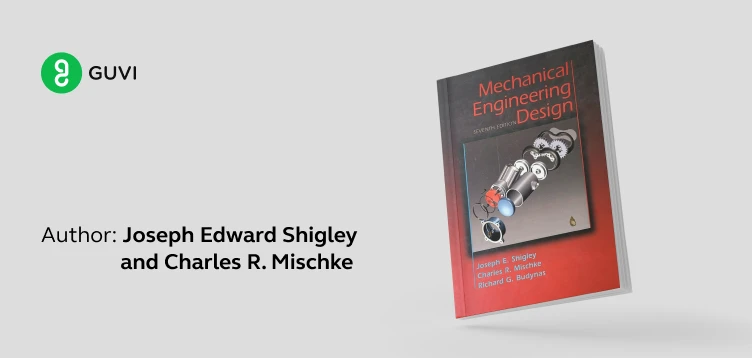
B. “Theory of Machines and Mechanisms” by John J. Uicker, Gordon R. Pennock, and Joseph E. Shigley
This book gets into how machines work and the science behind their movements. With lots of pictures and examples, you’ll easily grasp complex concepts. People really like it – it has a great 4.5-star rating on Amazon!
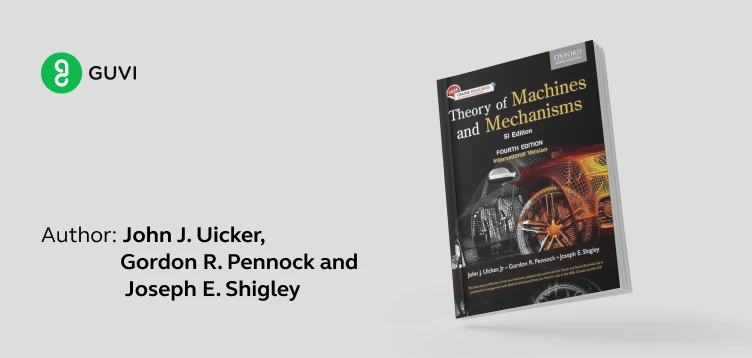
Mechanical Engineering in Robotics and Automation
Here are some of the books on Robotics and Automation that will be excellent resources for anyone interested in robotics and automation.
A. “Introduction to Autonomous Robots” by Nikolaus Correll, Bradley Hayes, and Bradley Hayes
This book is a beginner’s guide to robots. It explains all the basics so you can understand how robots work. It’s not just theory; you’ll get to do exercises to practice what you’ve learned. It’s got a perfect 5.0 rating on Amazon, so you know it’s really good!
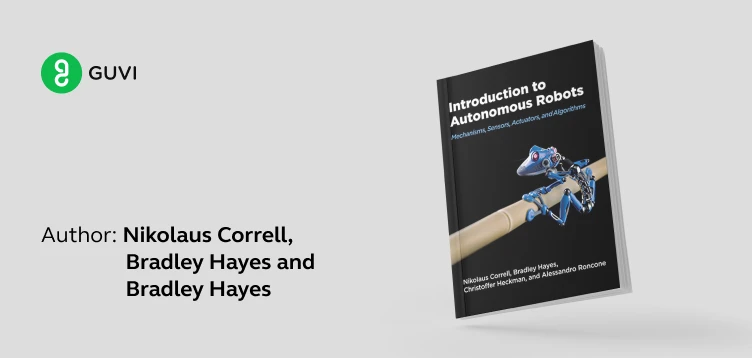
B. “Robot Modeling and Control” by Mark W. Spong, Seth Hutchinson, and M. Vidyasagar
This book has a good 4.3 rating on Amazon. The book goes into how to control robots, making it perfect for those who want to get into the nitty-gritty of robotics. It’s a mix of math and real-life examples to help you master robot control.
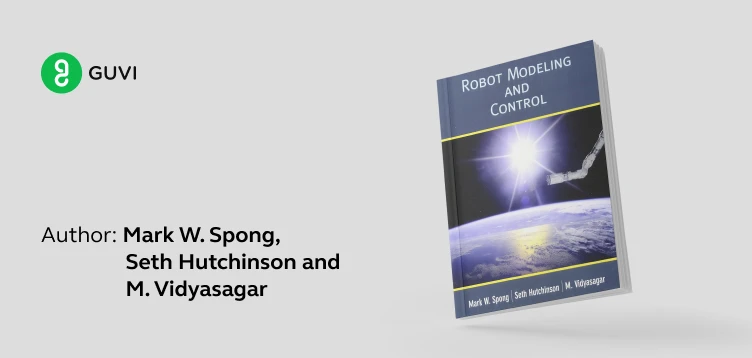
Mechanical Engineering: Understanding Engineering Mechanics
Here are some of the books on Engineering Mechanics that will be fantastic resources for anyone studying engineering mechanics.
A. “Engineering Mechanics: Statics” by J. L. Meriam and L. G. Kraige
This book gets into understanding objects at rest. You’ll learn how to analyze and solve problems related to stationary objects. It’s not just theory; you get lots of solved problems and practical examples to apply what you’ve learned. People who’ve read it have given it a 4.3 rating on Amazon, saying it’s really helpful to learn about the dynamics of stationary objects.
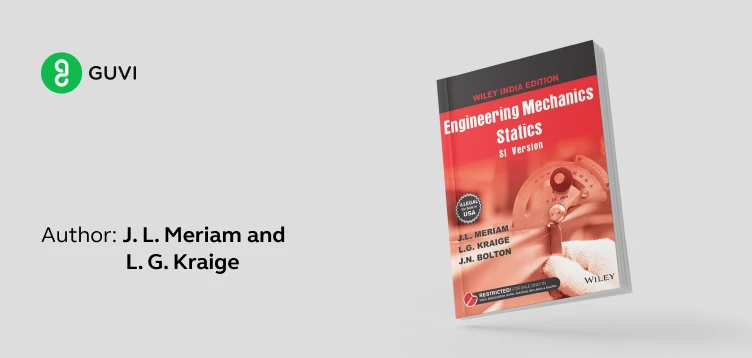
Kickstart your career by enrolling in GUVI’s CAD Career Program for Mechanical Engineers where you will master technologies including AutoCAD, Solidworks, CATIA, Ansys, GD & T, etc, and build interesting real-life mechanical projects.
Alternatively, if you would like to explore AutoCAD for Mechanical Engineering through a self-paced course, you can take GUVI’s AutoCAD Mechanical Certification Course.
B. “Engineering Mechanics: Dynamics” by J. L. Meriam and L. G. Kraige
This book, with a 4.5 Amazon rating, takes you deep into the concepts of moving objects. You’ll learn about forces, motion, and how to solve dynamic problems. The book uses pictures and exercises to help you understand and practice dynamic mechanics.
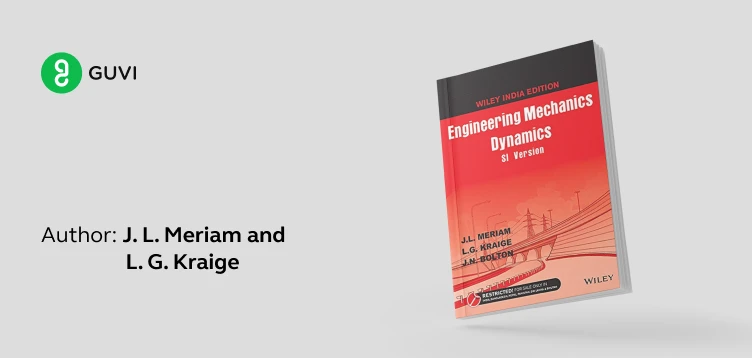
Conclusion
Remember, learning doesn’t stop here. Mechanical engineering is always changing and growing. So, keep exploring new things. Try online courses, read scientific journals, and join groups of professionals. This will keep you updated with the latest in mechanical engineering.
Becoming great at mechanical engineering is a lifelong adventure, and books are your trusty companions. With every book you read, you gain new knowledge and new skills. The road to mastery is all about staying curious and eager to learn. Embrace the challenge, enjoy the process of creating and solving problems, and become part of the generation that shapes our future.
Mechanical engineering is a cool world of building and designing things. With the right books and a love for learning, you can become an amazing mechanical engineer. So, pick up your books, dive into the exciting world of mechanical engineering, and be a part of the future’s big innovations!
FAQs
For beginners in mechanical engineering, “Shigley’s Mechanical Engineering Design” and “Introduction to Autonomous Robots” are excellent choices. They provide a solid foundation in design and robotics with clear explanations and practical exercises.
If you want to delve into thermodynamics and heat transfer, “Fundamentals of Engineering Thermodynamics” and “Heat and Mass Transfer” are top picks. They offer comprehensive coverage of these subjects with practical examples and applications.
To specialize in machine design and analysis, “Mechanical Engineering Design” and “Theory of Machines and Mechanisms” are the go-to options. They provide detailed insights into machine design principles and mechanisms, supported by practical examples and case studies.

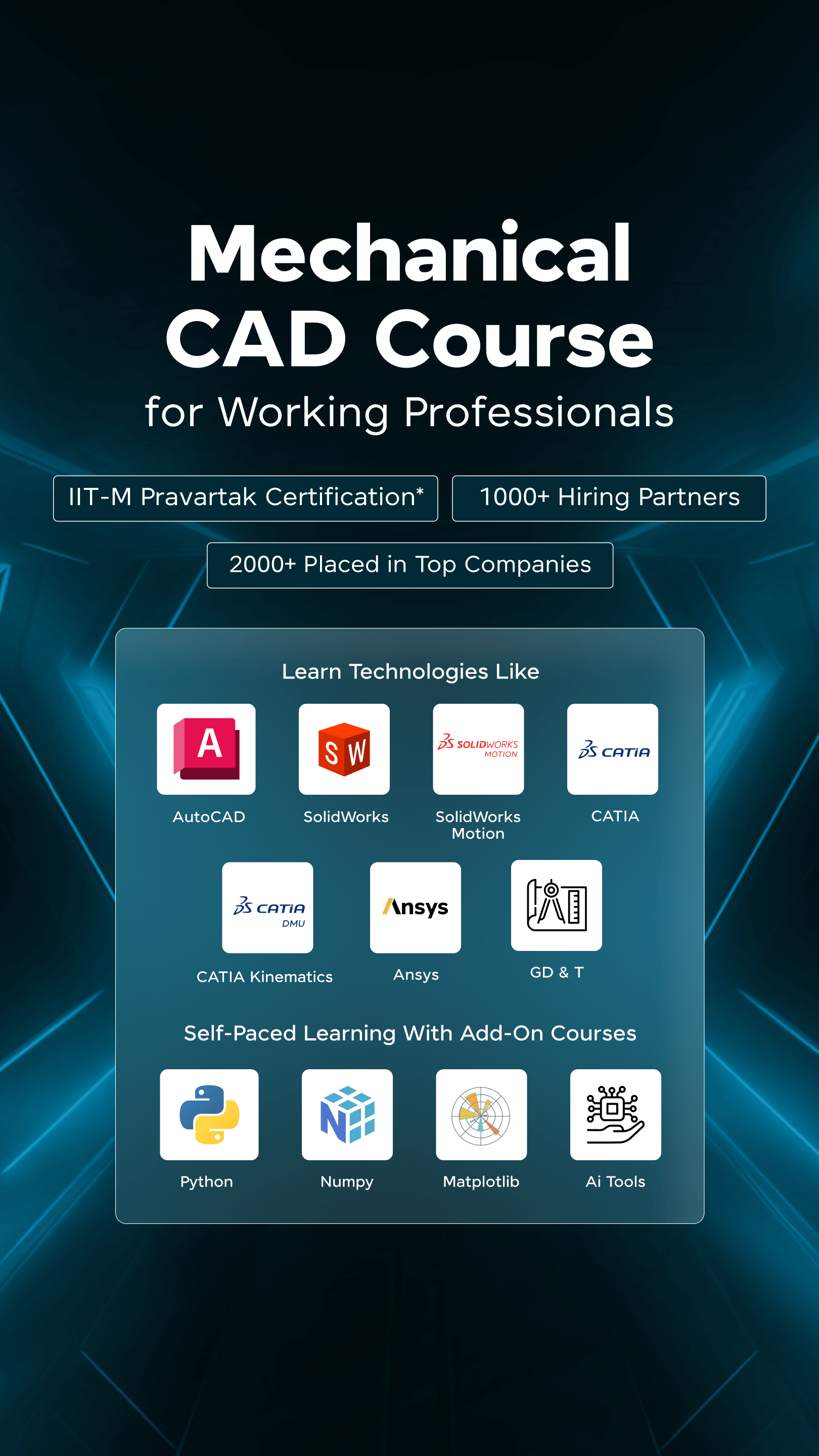























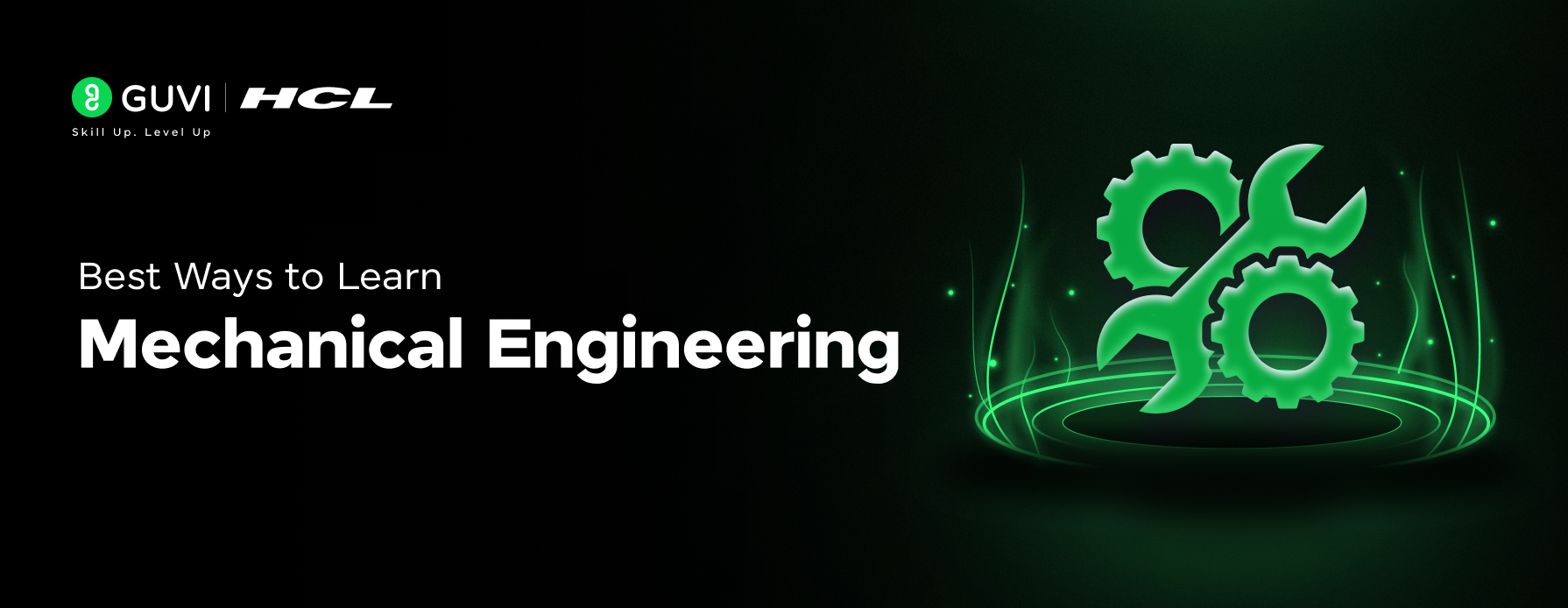


![Project-Based Learning: Smart Ideas and Important Tips To Implement It [2025] 21 Feature Image - Project-Based Learning](https://www.guvi.in/blog/wp-content/uploads/2024/05/feature_image.webp)


Did you enjoy this article?